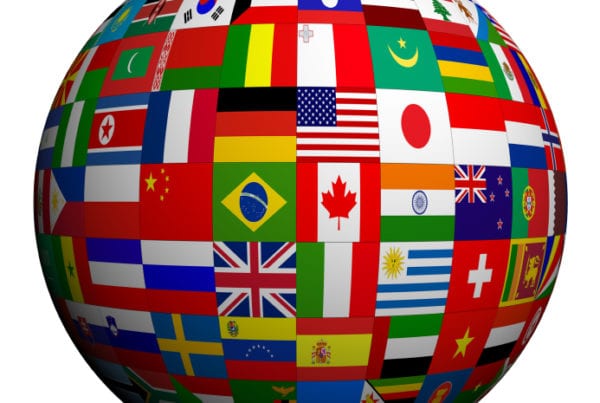A manager walked down the hall of his U.S.-based multinational company looking puzzled. He sees a colleague from Brazil who asks him, “Is everything okay?”
“Yes,” says the U.S. manager. “I just have so many meetings today that I’m not sure when I will get my work done!”
Later in the evening, a global team meets via WebEx to discuss a software release. Some of the team members have to stifle their yawns, as they were up early that morning for another call with India.
After the call, they check their email boxes. A flood of messages with differing priorities awaits. The team will need to work another two hours to tackle deliverables for their direct leader and two dotted line leaders. They eat dinner at their desks.
This describes a typical day in the life of a global team member. For the leaders of those organizations, the pressure can be intense. In fact, the whole world seems to have sped up and the demands of modern work seem unceasing.
Working across cultures offers so many rewards. Ethnically diverse organizations tend to financial outperform non-diverse companies, employees of those companies develop a broader skill set and increased creativity. But long hours, time zone gaps, deadline stress, and consistent work travel sometimes prevent us from reaping that reward.
When we’re too busy being busy all the time in our global teams, here are some common consequences:
- Under stress, we tend to default to our “comfort zone” way of being. The higher the stress level the more we go to what feels familiar. This may or may not be the best style for solving a problem with your cross-cultural team or innovating a new process.
- When the pressure of delivering on time mounts, we become less reflective. It’s harder to spot cultural differences that could be affecting our work together.
- The higher the stakes of meeting our goals, the more likely we are to fall into the “us and them” mentality across cultures when something goes wrong. “Why can’t THEY ever get things done on time??” This divided mindset ends up costing a team more time.
- To achieve our goals, we may over-focus on commonality. “We all just need to have a similar work ethic and we’ll get things done.” This masks the cultural differences that are likely at play, and encourages a monocultural mindset.
- We don’t get the time to think about the advantage that can be gained from working with other cultures.
What can we do? How do we get the most from our global talent, even if we can’t slow down our work or our world?
Here are the key factors for effectiveness that we have seen:
- The organization makes a commitment to gain value and advantage from their diverse workforce.
- Senior leadership embeds cross-cultural competencies into the daily workflow of the team through training, coaching, digital learning, tying cross-cultural skills to performance goals, and creating diversity principles.
- Global teams plan offsite meetings that leave room in the agenda for cultural exchange and informal bonding.
- Senior leaders push the idea that the team must both pull together as one to focus on common goals AND recognize different approaches to meeting those goals.
- Global teams create multiple channels of communication so that the voices from all cultures are heard.
- Individuals take pauses (even one minute helps!) throughout their busy day to be present. Breathe, count to three, and go back to your task. Block off time on your calendar that allows you to focus and be reflective. Commit to not multitasking on your next conference call. Download this app for thousands of meditations, along with course on mindfulness in the workplace: https://insighttimer.com/
Busyness has become a way of life, but we still have choices. As leaders we can set the tone. We can role model the behaviors that make global teams operate at their best. As team members we can choose to pause, to listen to another human being without checking our email, to learn something new about another culture.
Why not pause right now? End your reading of this blog with one deep breath, all the way in and all the way out.
Want to find out more about how to embed cross-cultural skills into your company’s workflow? Email us at [email protected] or call 770-936-9209 to find out more about the Highroad to Global Leadership initiative.





